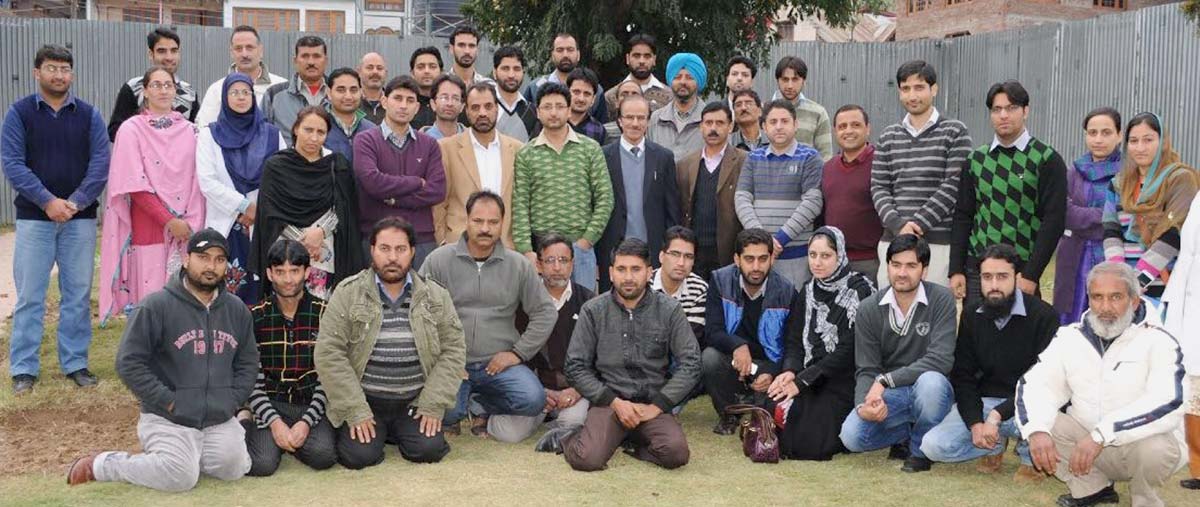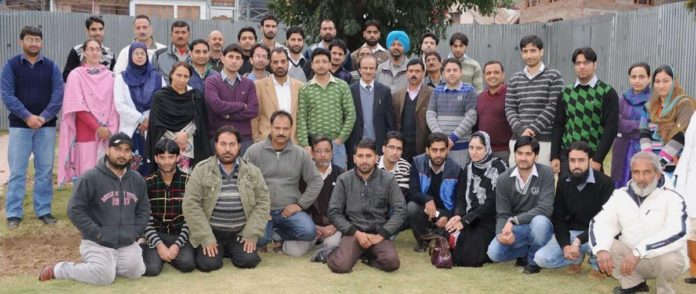With mental illness often being viewed as a moral failing and a sign of weakness in Kashmir, Babra Wani reports the challenges faced by individuals seeking mental health treatment.
In 2015, Asma, 17, was urged to seek professional help after a teacher noticed a scar on her wrist. She had been struggling with anxiety and depression for some time but had not considered seeking help until the intervention.
“We were concerned about more than just her mental health,” Asma’s mother recalled. “We wanted to protect her identity and avoid gossip. Seeking help privately was the best option.”
Asma’s mother consulted her brother, who recommended a psychiatrist with a private clinic. The doctor’s discretion and prompt attention put the family at ease. “In Kashmir, seeking psychiatric help is often stigmatised,” Asma’s mother explained: “We were relieved to find a trustworthy and understanding professional.”
“They were very cautious because they did not want me to face stigma due to my condition or treatment.” At the time, mental health discussions were even less open than they are today. “People would stare at us when we walked towards the clinic, which had no sign indicating it was a mental health facility, just a single board with the doctor’s name.”
Silent Suffering
Similarly, Mohammad Amir struggled with mental health issues but chose not to disclose his treatment to his family, opting to visit a psychologist in private. He sought therapy from a psychologist, as advised by his psychiatrist, but chose to keep it a secret from his parents. “My parents are from a generation in which mental health issues are not considered an illness, but rather a mere doubt (ye chuit che waham),” Amir explained. “If they found out I was visiting a psychologist, they would criticize me.”
Amir’s experience is not unique in Kashmir, where both mental health and mental health institutions face stigma. A four-year veteran psychiatrist noted, “We often meet people who whisper to us, fearing others might overhear. Our institutions are viewed as places where ‘something bad’ happens.” He emphasised, “As medical professionals, our job is more challenging due to the invisible nature of mental illnesses and associated stigmas. However, it’s crucial to acknowledge the significant number of people suffering from mental health issues, who either don’t seek help or are prevented from doing so due to stigmatisation.”
Fearful Secrecy
Abiroo, a regular visitor to a psychologist and psychiatrist, has had to conceal her treatment from friends and school authorities due to stigma. “I confided in a friend about my visits, but she told everyone I was a paagal (mad person) going to a paagalkhana (mental hospital) for treatment,” Abiroo said. “My teachers even called my parents, asking them to take their ‘pagal koor’ home.”
Similarly, Khushboo attended counselling sessions with caution, fearing societal backlash. “As I am of a marriageable age, I did not want anyone to know I was visiting a mental health institution,” Khushboo explained. “I value my image too much. I am aware of the labels and gossip surrounding these institutions. That is why you rarely see boards indicating psychiatric or psychological services in Kashmir – it is when the gossip starts.”
Rafiq, 65, attributes the stigma surrounding mental health institutions to the older generation. “We view mental health issues as simply ‘paagal gatchun’ (getting mad),” he said. “Other issues do not exist in our dictionary, and the younger generation acknowledges them. All mental health institutions are ‘paagalkhaanas’ (mental hospital). We are reluctant to change our mindset, so people take offence when you suggest seeking help.”
Zaina, who accompanied her daughter to a psychiatric clinic in Karan Nagar, shared a similar experience. “We would visit every Thursday, but I would make excuses about our absence, fearing judgment,” she said. “Once, we saw our neighbours there, and we both hid our faces as if we didn’t know each other. In Kashmir, visiting a clinic, especially a psychiatric one, is a big deal. I refused counselling for my daughter, fearing gossip and stigma. I wanted to hide her health issues, and counselling would have drawn attention. As a mother, I could not bear the thought of my child being the centre of gossip.”
A 2015 survey by Médecins Sans Frontières (MSF) revealed that approximately 1.8 million adults in Kashmir exhibit symptoms of mental distress.
Experts Weigh In
Dr Yasir Rather, Professor of Psychiatry at GMC Srinagar, acknowledged that stigma still surrounds mental health institutions due to factors like lack of awareness, cultural beliefs, and negative media portrayals. “To combat this, we need comprehensive public education campaigns, balanced media reporting, societal involvement, advocacy for pro-mental health policies, and investment in quality care,” he said. “Addressing these aspects will reduce stigma and ensure better support for those in need.”
Wasim Kakroo, Consultant Clinical Psychologist at the Centre for Mental Health Services in Srinagar, echoed Dr Rather’s sentiments. “Cultural misconceptions and the fear of the unknown contribute to the stigmatization of mental health institutions,” he said. “Limited knowledge and insufficient education about mental health also play a crucial role.”
Another clinical psychologist supported Wasim Kakroo’s views, citing multiple factors contributing to the stigmatisation of mental health in Kashmir. “For ages, mental illness has been viewed as taboo or a sign of weakness, and people are discouraged from discussing it,” she said. “Those who do are labelled ‘PAGAL’ (mad), institutions are called ‘Pagal Haspatal’ (mental hospital), and professionals are referred to as ‘Pagalan Hund Dactar’ (doctors for mad people).”
She further emphasized that individuals conceal their mental health struggles to avoid judgment and ostracism. “Limited education and awareness about mental health perpetuate misunderstandings and misperceptions. Many do not recognize mental health issues as legitimate medical conditions requiring treatment. Instead, they consult faith healers, which exacerbates their condition.”
Breaking Barriers
Wasim Kakroo emphasised the need for a multi-faceted approach to address mental health stigma. “To tackle this issue, we must promote a comprehensive understanding of mental health, advocate for legislation prioritizing mental health care, and encourage positive media portrayals,” he said.

Kakroo suggested that community outreach, education programs, and personal testimonials can effectively dispel misconceptions and promote a more inclusive atmosphere for those seeking help. “By engaging in these efforts, we can foster a supportive environment that encourages individuals to seek assistance without fear of judgment or ostracism.”
(Names have been changed to ensure the privacy and confidentiality of the individuals)


